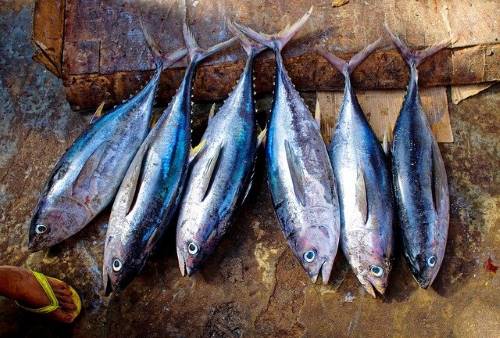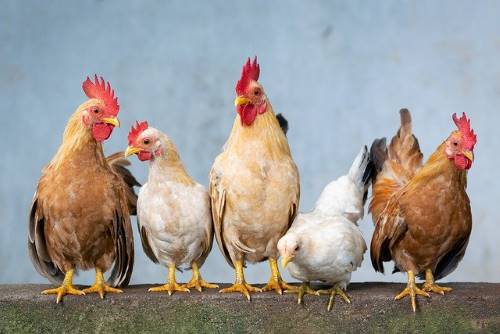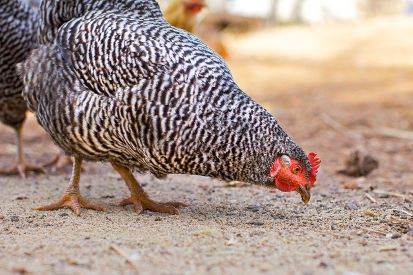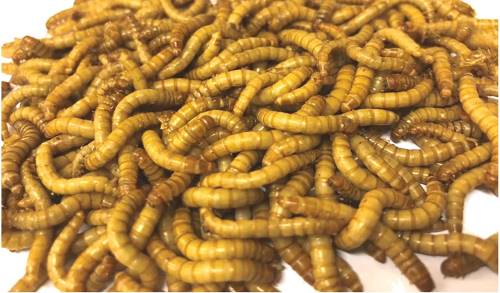If you’re anything like me, the well-being of your chickens is always top of mind. What should they eat? How much? Can they eat this or that? It’s all part of the wonderful yet sometimes perplexing journey of chicken keeping. One question that recently had me scratching my head was: can chickens eat tuna?
To answer briefly: chickens can eat tuna, but it’s not as straightforward as that. Tuna, high in protein and packed with essential nutrients, can benefit our feathered friends. However, factors like potential mercury content and high salt levels in canned tuna necessitate us to approach this topic cautiously.
In the following sections, we’ll dive deeper into understanding the chicken diet, the benefits and risks of feeding tuna to chickens, how to do it safely if you choose to, and some alternative food options. This comprehensive guide ensures you’re equipped with the right knowledge to make informed dietary choices for your beloved flock.

Understanding the Chicken Diet
Chickens are a curious sort and are known to peck at anything that resembles food. But as chicken keepers, we must ensure they get the right nourishment.
Basic Nutritional Needs of Chickens
Chickens need a balanced diet high in protein, with adequate carbohydrates, vitamins, and minerals. Layer hens require additional calcium for eggshell production. A diet rich in various grains, fruits, vegetables, and proteins usually provides most of these essentials.
Importance of a Varied Diet in Chickens
Dietary variety is crucial for chickens’ overall health. Chickens are natural omnivores, meaning they can consume a range of foods, from grains and vegetables to insects and small rodents. A varied diet can help meet their nutritional needs and maintain their interest in feeding.
Common Misconceptions about What Chickens Can and Can’t Eat
Misinformation abounds regarding what chickens can safely consume. While they can eat a wide range of foods, some, like chocolate and avocado, are toxic.
[ChickenAffiliate]
Exploring Unusual Chicken Foods: The Case of Tuna
Here’s a thought: Have you ever considered feeding your chickens tuna? It might seem offbeat, but let’s delve into it.
How Chickens Interact with Unusual Foods
Chickens are instinctively explorative eaters. Introducing them to new foods could be a fascinating experiment. Watch their reactions, observe whether they like it, and always monitor for adverse effects.
Introduction to Tuna: Nutritional Content and Benefits
Tuna is a rich source of proteins, vitamins, and omega-3 fatty acids. It could potentially provide some valuable nutrients to your flock. But remember, while we humans love a good tuna sandwich, the question remains: is it suitable for chickens?
Why Chickens Might Be Attracted to Tuna
Chickens might be drawn to the strong aroma of tuna. Also, as natural omnivores, the protein content in tuna might appeal to them.
Potential Benefits of Tuna for Chickens

Tuna might just be more than a treat for your chickens.
Tuna as a Source of Protein
Protein is vital to chickens’ health, promoting growth and feather production. Being high in protein, tuna might be an excellent supplement to your chickens’ diet.
Omega-3 Fatty Acids in Tuna
Omega-3 fatty acids contribute to chickens’ cardiovascular health and could improve the quality of their eggs. Tuna is abundant in these fatty acids.
Additional Nutrients Found in Tuna
Tuna is packed with essential vitamins and minerals, including selenium, Vitamin B12, and Vitamin D. These nutrients can support the overall health of your chickens.
Risks and Precautions Associated with Feeding Tuna to Chickens

However, before you open a can of tuna for your flock, there are a few things to consider.
Potential for Mercury Poisoning
Tuna contains mercury, and though small amounts are not harmful to humans, chickens are much smaller and could be more susceptible to mercury poisoning.
Salt Content in Canned Tuna: Implications for Chickens
Canned tuna often contains added salt, which is not ideal for chickens. High sodium intake can lead to health issues like hypernatremia.
Choking Hazards: Ensuring Safe Consumption
Chickens don’t chew their food like we do. Make sure to mash up the tuna well to prevent potential choking hazards.
How to Feed Tuna to Chickens Safely and Effectively

If you’ve weighed the pros and cons and decided to proceed, here’s how to do it right.
Preparing Tuna for Chicken Consumption
Opt for fresh or frozen tuna instead of canned, if possible, to avoid excess salt. Cook it thoroughly and mash it well before serving.
Appropriate Serving Sizes and Frequency
Tuna should be a treat, not a staple in your chickens’ diet. Limit serving to a few times per month, and watch your flock for any adverse reactions.
Tips for Integrating Tuna into a Chicken’s Diet
Mix the tuna with other chicken-friendly foods. That way, your chickens will get a variety of nutrients along with the treat.
Alternatives to Tuna for Providing Similar Nutrients

If you’re hesitant about feeding tuna to your chickens, there are plenty of alternatives.
Other Sources of Animal Protein for Chickens
Worms, insects, and mealworms are great protein sources that chickens naturally enjoy. They can also eat lean meats and fish other than tuna.
Plant-Based Omega-3 Sources for Chickens
Flaxseeds are a popular plant-based source of omega-3 fatty acids. You can grind them and mix them into your chickens’ feed.
Balancing the Chicken Diet for Optimal Health
In the end, it’s all about balance. A mix of grains, fruits, vegetables, and proteins, supplemented with necessary minerals and vitamins, will ensure your chickens’ optimal health and happiness. Remember, if you’re unsure, it’s always a good idea to consult a poultry expert or a veterinarian.
What other seafood can chickens eat?

While tuna may have pros and cons when it comes to feeding chickens, other seafood options can provide valuable nutrients to our feathered friends. Let’s explore some popular seafood choices and whether they are suitable for chickens.
Shrimp
Shrimp can be a tasty and protein-rich treat for chickens. These small crustaceans are a good source of protein, vitamins, and minerals. Feeding shrimp to chickens in moderation can help diversify their diet and provide additional nutrients.
However, ensuring the shrimp is cooked thoroughly and free from any seasonings or additives that could harm chickens is important.
Read More: Can Chickens Eat Shrimp? Exploring Seafood Delights
Fish
Fish, in general, can be a beneficial addition to a chicken’s diet. Fish is a rich source of protein and omega-3 fatty acids essential for optimal health and egg production.
Feeding chickens small amounts of cooked fish can provide a natural protein boost. However, it’s important to avoid feeding them raw fish, as it may contain parasites or bacteria that can harm chickens.
Read More: Can Chickens Eat Fish? Uncover The Surprising Benefits
Salmon
Salmon is a highly nutritious seafood choice for both humans and chickens. It is packed with omega-3 fatty acids, which can promote healthy feathers, egg production, and overall well-being in chickens.
Cooked salmon can be offered to chickens as a treat occasionally. Remember to remove any bones and avoid using any seasoning or additives that might harm chickens.
Read More: Can Chickens Eat Salmon? Unraveling The Mystery Of Seafood
Minnows
Minnows, small freshwater fish, can be a fun and natural addition to a chicken’s diet. These tiny fish are rich in protein and can be an excellent source of entertainment for chickens as they enjoy the thrill of catching their prey.
Feeding live or dried minnows to chickens can provide a protein-rich snack, but it should be done in moderation and as part of a balanced diet.
Read More: Can Chickens Eat Minnows? 5 Great Benefits
FAQ: Can Chickens Eat Tuna?
Can all chickens eat tuna?
Generally, chickens can eat tuna. However, it’s important to consider individual variations and potential sensitivities. Monitor your chickens’ reactions when introducing tuna to their diet and discontinue if any adverse effects are observed.
Is tuna the only seafood that chickens can eat?
No, there are other seafood options that chickens can consume. Shrimp, fish, salmon, and minnows are some examples. Remember to offer seafood treats sparingly and as part of a balanced diet.
What about the environmental impact of feeding chickens tuna?
It’s essential to be mindful of the environmental impact when sourcing tuna for your chickens. Overfishing and unsustainable fishing practices can harm marine ecosystems. Consider choosing tuna from sustainable and responsibly managed fisheries to minimize the environmental footprint.
Should I consult a veterinarian before feeding tuna to my chickens?
While this article provides general guidance, consulting a veterinarian or poultry expert is always advisable. They can offer personalized advice based on your flock’s specific needs and circumstances.
How can I observe my chickens’ reactions to tuna?
Introduce tuna gradually into their diet and observe their behavior and overall health. If discomfort, digestive issues, or allergic reactions are noticed, discontinue feeding tuna and consult a professional.
Can chickens eat tuna – final thoughts
To summarize, the question of whether chickens can eat tuna was addressed in depth. The answer, we found, is a cautious yes. Tuna, rich in protein and essential nutrients, does have potential benefits for chickens. However, potential health risks like mercury and high salt content must be considered. For those reluctant to introduce tuna into their chicken’s diet, various alternative sources of similar nutrients were also discussed.
In conclusion, remember that a healthy chicken diet is about balance and variety. Whether you decide to feed your chickens tuna or prefer to stick to more traditional chicken feeds, your primary focus should be the overall well-being of your flock. Their health and happiness should always come first.
